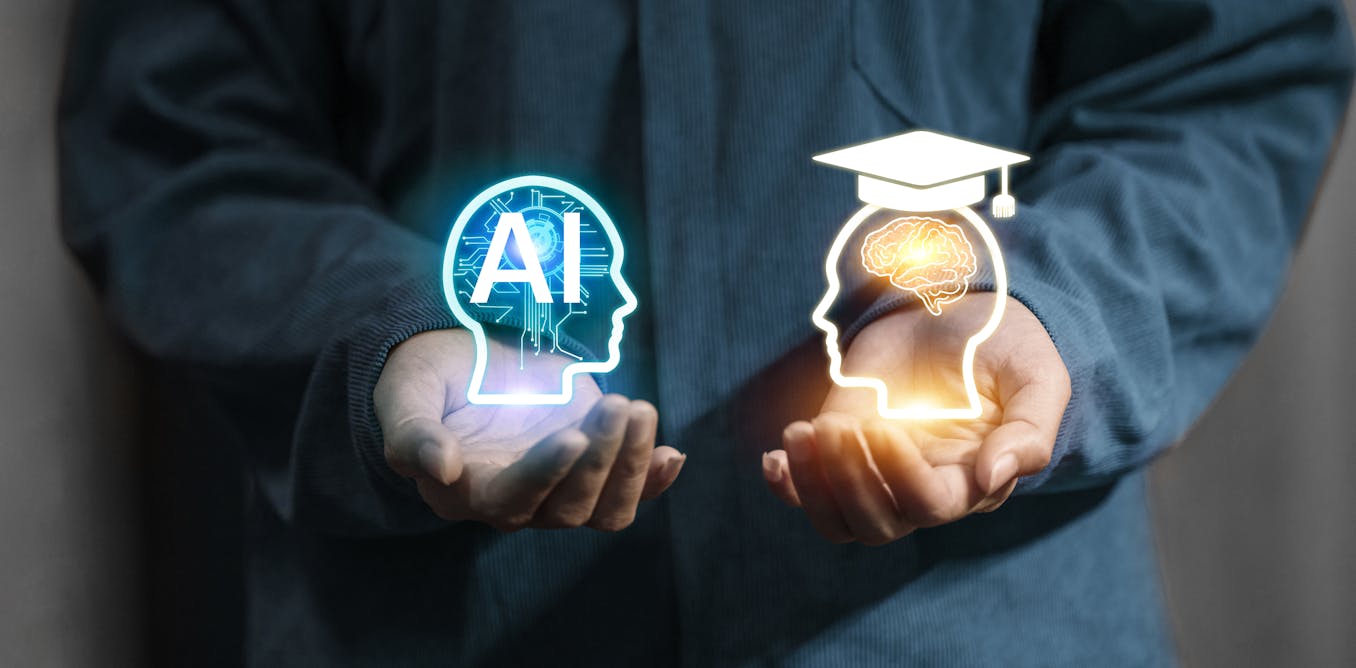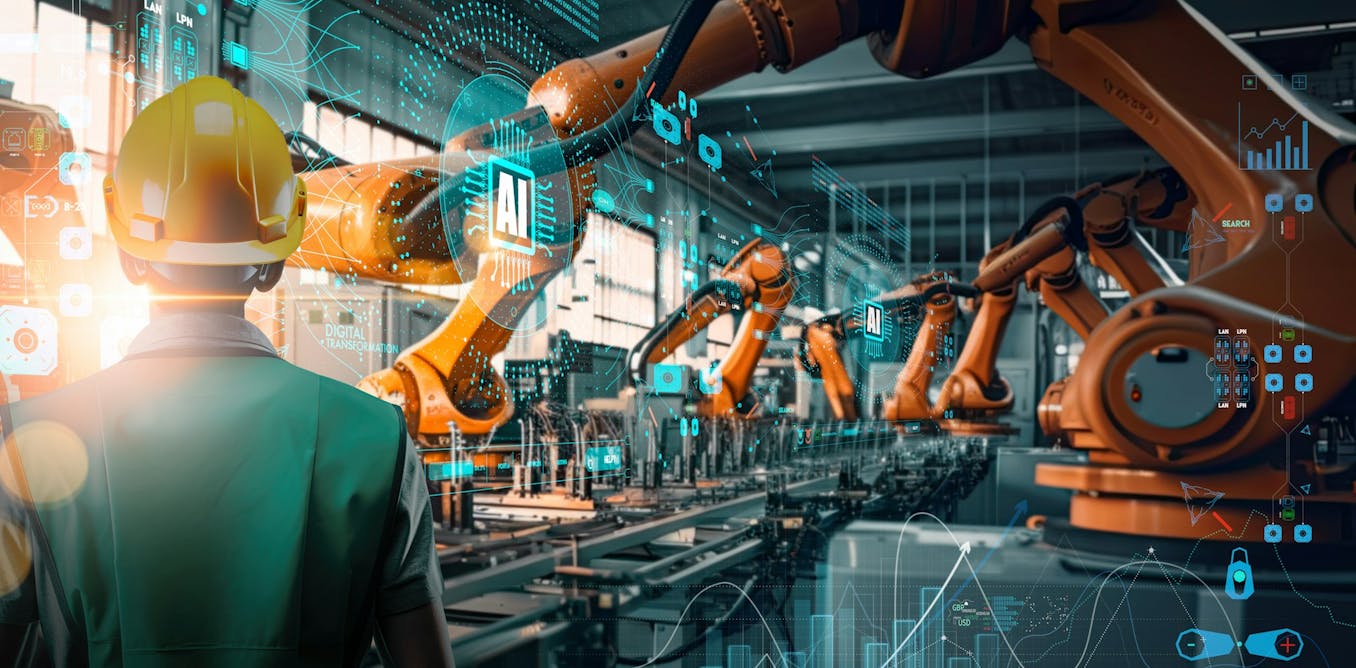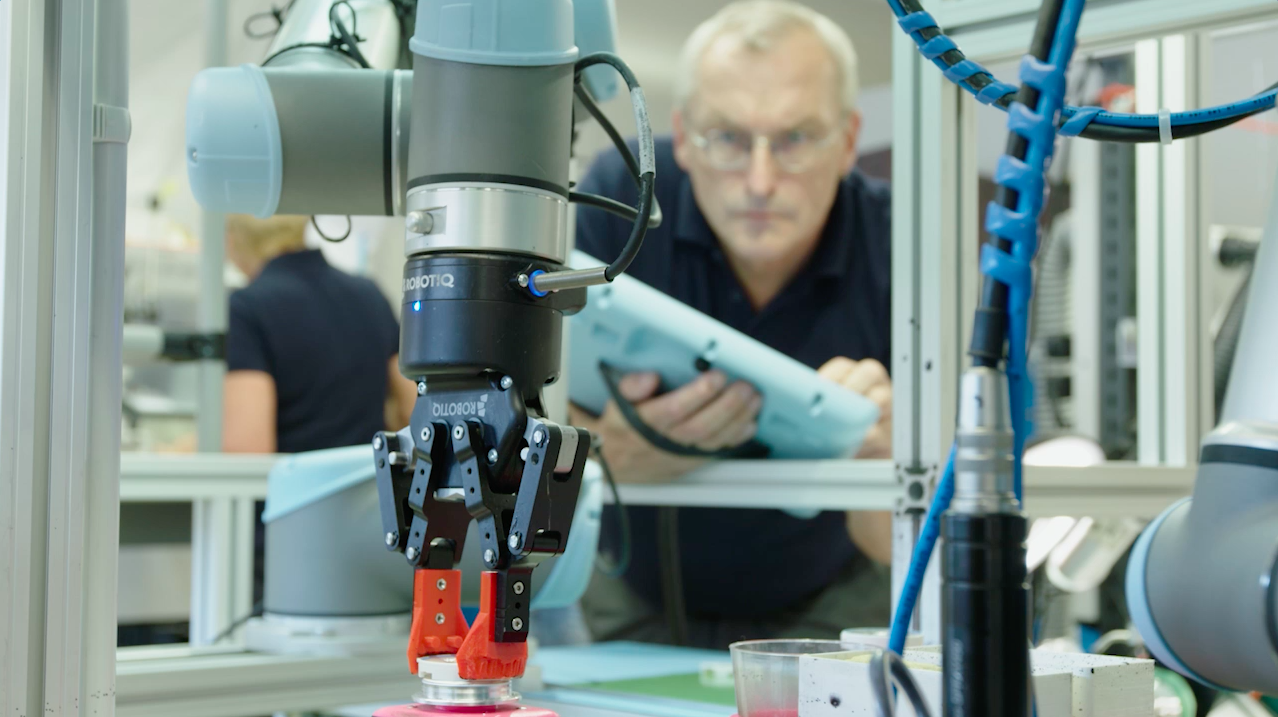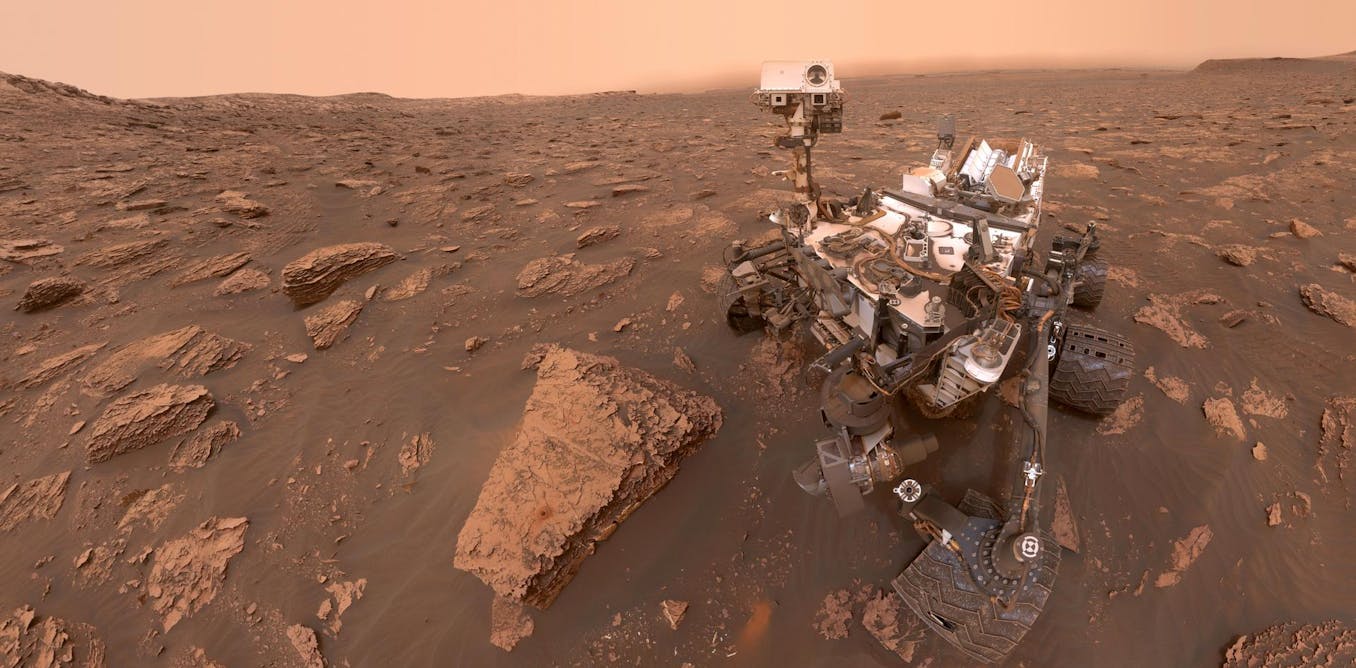Quantum Computing and AI are two revolutionary technologies that, when combined, have the potential to transform the way we think about artificial intelligence. In a recent video, we explored the 10 most exciting possibilities that arise when quantum computing is used in AI applications.
First and foremost, the speed and efficiency of AI systems will skyrocket with the integration of quantum computing. Quantum bits, or qubits, can exist in multiple states simultaneously, allowing quantum computers to process vast amounts of information at once. This means that tasks that were once considered complex and time-consuming can now be executed with unprecedented speed.
Furthermore, the development of AI systems with general intelligence is on the horizon. General AI refers to systems that can perform a wide range of tasks, including those that require human-level intelligence. With quantum-based AI, it may be possible to create AI systems that are truly general in their intelligence, capable of tackling any task a human can with comparable proficiency.
Additionally, new algorithms and applications will be developed for AI with the fusion of quantum computing and AI technologies. Quantum algorithms designed to leverage the unique properties of qubits will enhance machine learning processes, enabling AI systems to excel at complex tasks like optimization problems and pattern recognition.
Moreover, the integration of quantum-based AI could help solve the problem of bias in AI systems. By enabling a more thorough evaluation of multiple variables simultaneously, quantum-based AI can reduce the risk of biased decisions based on limited information. This could have profound implications for industries like healthcare, finance, and material science.
In conclusion, the possibilities for AI with the integration of quantum computing are truly limitless. From faster and more efficient AI systems to the development of AI with general intelligence, the future of artificial intelligence is bright with quantum computing at its core. As these technologies continue to evolve, we can expect breakthroughs in medicine, finance, material science, and robotics, ultimately leading to a better understanding of the human brain and the development of more sophisticated AI agents. The possibilities are endless, and we are only scratching the surface of what quantum-based AI can achieve.
Watch the video by AI Uncovered
Video Transcript
As Quantum Computing grows in power and sophistication its potential for AI is staggering with this technology we could create AI systems that are more intelligent more creative and more humanlike than ever before by the end of this video you’ll learn the 10 most exciting possibilities for AI when
Quantum Computing comes into play ready for this one let’s start number one AI systems will become faster and more efficient when Quantum Computing uses AI it will birth a dynamic duo that could redefine the speed limits of artificial intelligence it’s like giving a race car to an already Nimble superhero AI
Systems will become faster and more efficient than ever before Quantum bits can exist in multiple States simultaneously allowing quantum computers to process fast amounts of information at once when AI Taps into this Quantum realm tasks that one once seemed dauntingly complex will be executed with unprecedented speed Quantum computing’s ability to explore
Multiple Solutions simultaneously will revolutionize machine learning imagine training a model not on One path but on a multitude of possibilities at the same time this means quicker adaptation faster learning curves and a leap in problem solving capabilities number two the birth of AI systems with general intelligence to understand how quantum-based AI could
Lead to the development of AI systems with general intelligence it’s helpful to understand the difference between narrow Ai and general AI narrow AI refers to AI systems that are designed to perform a specific task such as image recognition or language translation General AI on the other hand refers to
AI systems that are capable of performing a wide range of tasks including many tasks that require human level intelligence with Quantum based AI it may be possible to develop AI systems that are truly General in their intelligence meaning they can take on any task that a human can and do so at a
Level comparable to a human this could have a profound impact on all areas of life from Health Care to education to Transportation it could also raise new ethical and philosophical questions such as whether an AI system with enal intelligence should be considered a person with rights and responsibilities number three new
Algorithms and applications will be developed for AI as Quantum Computing and AI join forces we can anticipate a shift in the landscape of algorithms and applications the fusion of these two Cutting Edge technologies will usher in novel problem-solving approaches surpassing the capabilities of classical Computing Quantum algorithms designed to
Leverage The the unique properties of quantum bits will play a pivotal role in enhancing machine learning processes Quantum enhanced machine learning models are expected to excel at complex tasks such as optimization problems and pattern recognition where classical algorithms May struggle this amalgamation of quantum and AI techniques May pave the way for more
Efficient data processing and decision-making in various Fields additionally the combination of quantum Computing and AI is likely to fuel advancements in fields like cryptography quantum computers inherent ability to handle certain mathematical problems at an unprecedented speed poses both challenges and opportunities for securing data researchers will need to develop Quantum resistant cryptographic
Techniques to ensure the continued security of AI applications number four quantum based AI could help solve the problem of bias and AI the use of Ai and Quantum Computing could optimize complex optimization problems like minimizing biases and decision-making processes consider an AI task with selecting job candidates Quantum Computing could
Enable a more thorough evaluation factoring in a multitude of variables at the same time reducing the risk of biased decisions based on limited information moreover Quantum AI May enhance encryption methods ensuring the security of sensitive data Quantum key distribution could offer unbreakable codes strengthening the foundations of privacy in our
Interconnected world number five breakthroughs in medicine finance and Material Science drug Discovery is likely going to experience a shift thanks to the fusion of quantum Computing and AI Quantum algorithms can simulate molecular interactions at an unparalleled level allowing AI to analyze vast chemical spaces quickly this could lead to the identification of
Novel drug candidates with remarkable Precision accelerating the development of new treatments in finance quantum-based AI could transform risk assessment and portfolio optimization Quantum algorithms excel at analyzing complex Financial models offering more accurate predictions and enabling faster decision-making this integration May enhance investment strategies and risk management ushering in a new era of
Efficiency in the financial sector Material Science stands to benefit as well Quantum simulations can predict material properties with exceptional accuracy guiding AI algorithms to design Innovative materials for diverse applications from electrons to renewable energy consider a scenario where a Quantum AI system efficiently analyzes genetic data to identify personalized Cancer Treatments optimizing drug
Combination ations for individual patients isn’t that amazing number six new understanding of the human brain scientists have been trying to unravel the mysteries of the human brain and the combination of quantum Computing and AI may just be the answer to their years of research the human brain is incredibly
Complex with trillions of interconnected neurons quantum-based AI operates on principles that mirror the unknown nature of these neural connections just as our thoughts can exist in a superposition of different ideas cubits can exist in a superposition of States enabling more nuanced computations quantum-based AI might hold the key to
Simulating and understanding the brain’s intricate processes in ways classical computers cannot by harnessing quantum entanglement where cubits become interconnected researchers can mimic the interconnectivity of neurons potentially leading to breakthroughs and understanding cognition and conscious number seven the development of AI agents that can perform complex tasks to begin with the increased processing
Power of quantum Computing could allow AI agents to process large amounts of data in real time enabling them to adapt to changing situations and make decisions quickly additionally quantum-based AI could make use of quantum phenomena like superposition and entanglement to find patterns and Connections in data that would be
Difficult or impossible to detect with traditional Computing methods this could allow AI agents to identify hidden relationships and insights that could be used to solve complex problems and before I forget you know how I mentioned that Quantum based AI could make use of quantum algorithms that are designed to
Find Optimal Solutions to complex problems right well this could allow AI agents to consider a vast number of possible solutions and choose the best t one based on a given set of criteria for example an AI agent tasked with optimizing a supply chain might be able to find a solution that’s both efficient
And costeffective taking into account a wide range of factors such as Transportation costs inventory levels and customer demand number eight new advances in robotics and autonomous systems Robotics and autonomous systems require sophisticated algorithms to operate and quantum-based AI could enable significant advances in these areas Quantum Computing could allow
Robots to process fast amounts of sensor data in real time allowing them to navigate and interact with their environment more effectively quantum-based AI could also be used to improve the autonomy of robots by allowing them to learn from their own experiences and adapt to new situations for example a robot that’s programmed
With Quantum based AI could be trained to perform a task such as picking and packing items in a warehouse as the robot performs this task it could use its Quantum based AI to Monitor and analyze the results of its actions and make adjustments to Its Behavior based
On what it learns over time this could lead to dramatic improvements in the robot’s performance allowing it to operate more efficiently and with less human intervention additionally quantum-based AI could be used to develop new types of robots that are capable of interacting with humans in more natural and intuitive ways for
Instance a Quantum based AI could be used to develop a robot that can understand and respond to human emotions allowing it to provide more effective and empathetic assistance in a wide range of settings such as health care elder care and education quantum-based AI could also enable the development of
Autonomous systems that are capable of operating in more complex and dynamic environments such as self-driving cars and unmanned aerial vehicles or uavs these systems could use quantum-based AI to make split-second decisions and respond to unexpected events improving their safety and reliability number nine the development of self-aware AI systems one of the key
Areas where quantum-based AI could enable self-aware AI systems is in the area of self-learning self-learning is a process by which an AI system can improve its capability ities by analyzing its performance and identifying ways to improve with Quantum based AI self-learning could be accelerated allowing the AI to learn at
A much faster rate and adapt to changing conditions more quickly this could lead to self-aware AI systems that are capable of constantly improving their performance and achieving ever higher levels of intelligence another way that quantum-based AI could enable self-aware AI is through the use of Consciousness models these are mathematical models
That attempt to simulate the processes that underly human consciousness including awareness perception memory and thought with quantum-based AI these models could be simulated at an unprecedented level of complexity potentially allowing self-aware AI systems to exhibit behaviors that are more similar to those of humans this could allow for more natural and
Intuitive interactions between humans and AI systems number 10 the quantum singularity this is a theoretical concept that refers to the moment when AI systems powered by Quantum Computing reach a level of intelligence that far surpasses human intelligence this could happen if an AI system develops the ability to improve itself leading to a
Massive increase in its intelligence over time this could lead to a singularity point where the intelligence of the AI system becomes impossible to predict or control some experts are argue that this could be the end of the human era While others believe it could be the beginning of a new age of
Collaboration between humans and AI systems if you’ve made it this far let us know what you think in the comment section below for more interesting topics make sure you watch the recommended video that you see on the screen right now thanks for watching
Video “10 Things Will Happen When Quantum Computing Uses AI” was uploaded on 02/22/2024 to Youtube Channel AI Uncovered

























